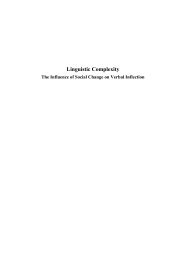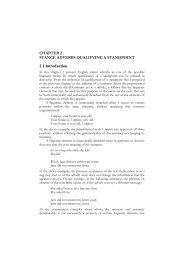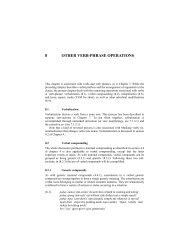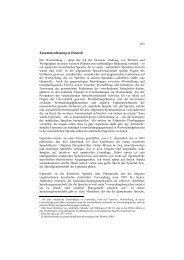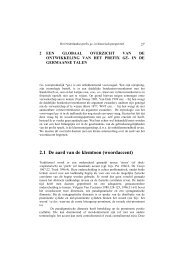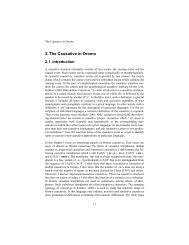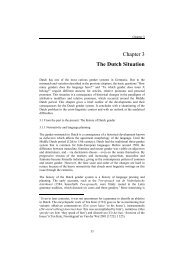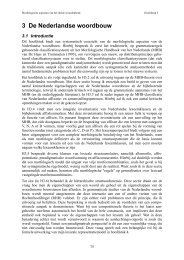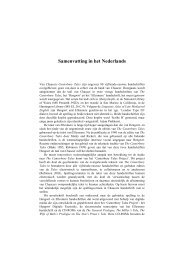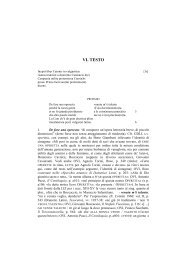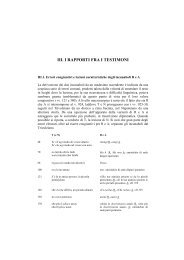Chapter 9 - LOT publications
Chapter 9 - LOT publications
Chapter 9 - LOT publications
You also want an ePaper? Increase the reach of your titles
YUMPU automatically turns print PDFs into web optimized ePapers that Google loves.
Accounts of SLI in Afrikaans<br />
(1966). As both ‘be’ and the abstract preposition are semantically<br />
poor, it could be that the child does not provide the complex form<br />
[P+‘be’] with phonological contents at Spell-Out.<br />
Where ge- is omitted, one could argue that the feature bundle<br />
which in the adult grammar matches the sound form of the past<br />
participle is indeed selected from the lexicon, but that, at Spell-<br />
Out, this feature bundle receives a sound form matching that of<br />
the infinitive in the adult grammar. In terms of Distributed<br />
Morphology, a non-adult-like vocabulary item would have “won”<br />
the competition between the verbal forms (finite form, infinitival<br />
form, participial form). This explanation is plausible, seeing that<br />
there are indeed competing past participial forms: those which<br />
resemble infinitival ones (such as onthou ‘remember’ – het onthou<br />
‘remembered’) and those with ge- (such as bou ‘build’ – het gebou<br />
‘built’). The Afrikaans-speaking child with SLI has to identify one<br />
past participial form from a set of competing potential candidates,<br />
and the correct form is then not necessarily identified.<br />
282<br />
However, even if one assumes that the incorrect verb form (i.e.,<br />
the infinitive instead of the past participle) was selected from the<br />
lexicon, this incorrect selection should not cause the derivation to<br />
crash, as neither the infinitive nor the past participle has features<br />
which check any feature of the T; the T’s features are checked by<br />
the temporal auxiliary het. However, a past participial form<br />
presumably has a feature which causes it to be selected as the<br />
complement of het. If an infinitive is selected instead of a past<br />
participle, then a selectional feature of het is not checked. Given<br />
that, despite this (apparently) unchecked feature, the derivation<br />
does not crash, one could assume that the feature is, in fact,<br />
checked: A feature bundle resembling that of a past participle was<br />
selected from the lexicon by the child with SLI; at Spell-Out, this<br />
feature bundle is realised in a way which differs morphologically<br />
from the way in which the adult speaker of Afrikaans would<br />
realise it. Again, one could argue that the problem in the grammar<br />
of the Afrikaans-speaking child with SLI lies not in the syntactic<br />
representation, but at Spell-Out; i.e., at the point where the<br />
syntactic representation is mapped onto a phonological<br />
representation.



